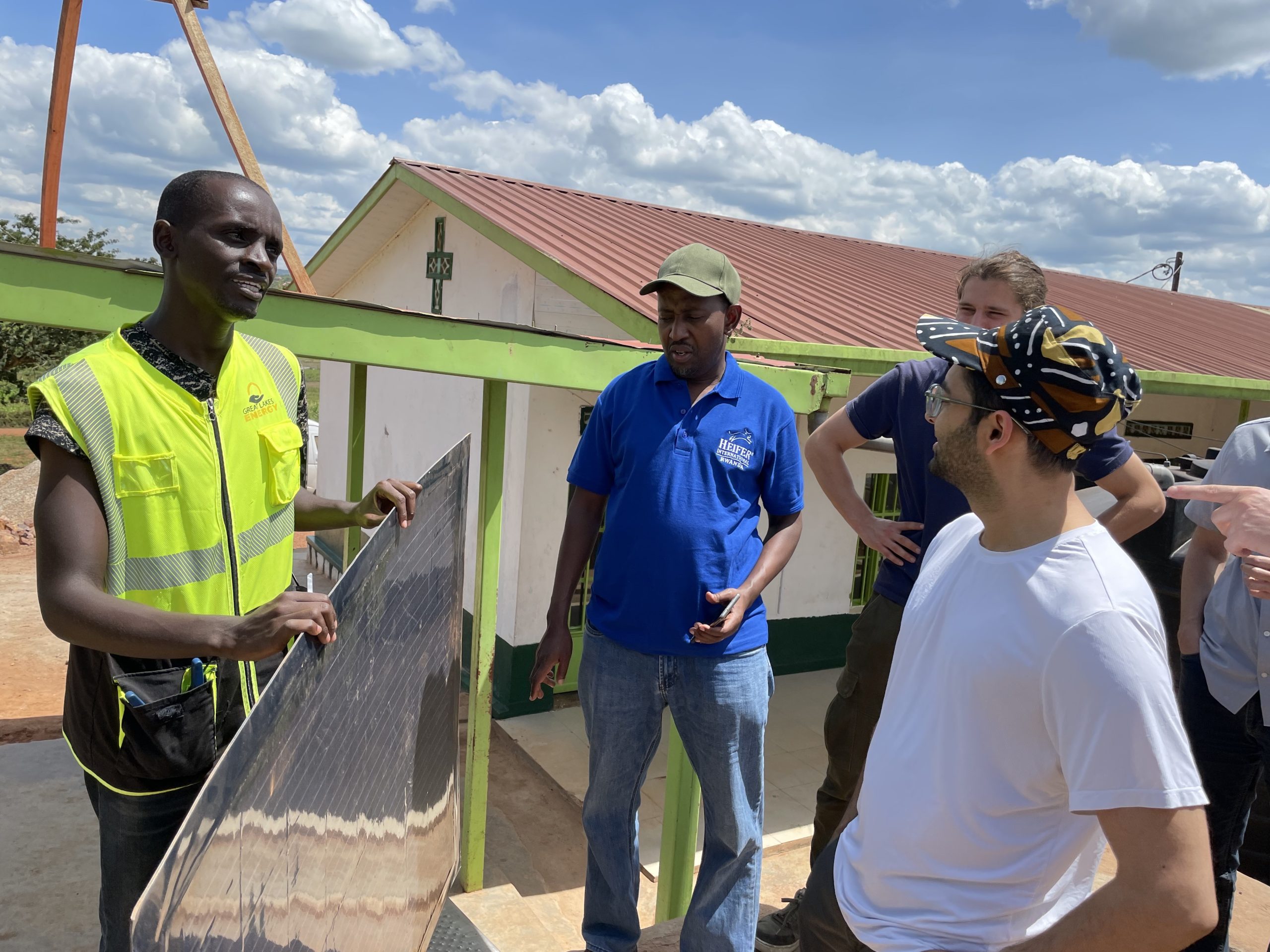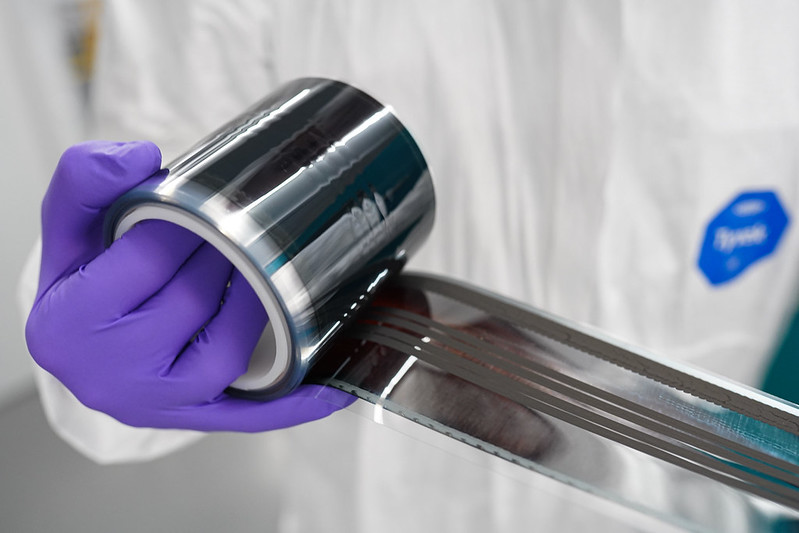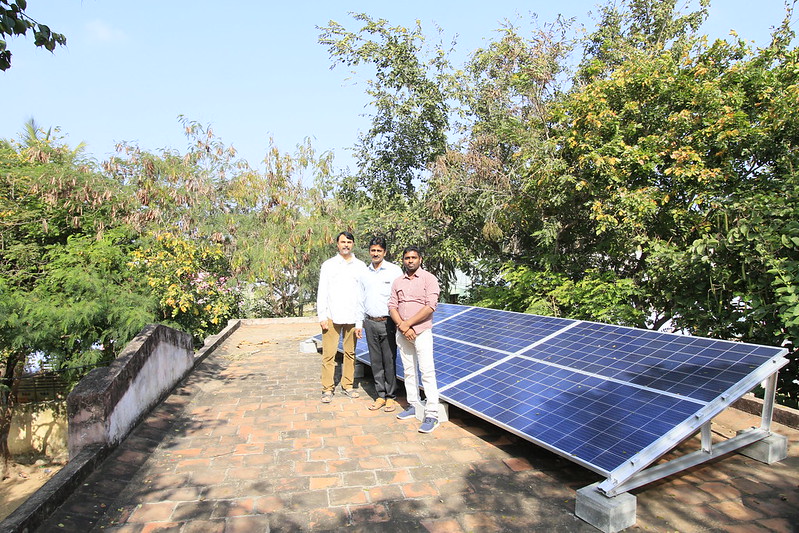A new collaboration led by Swansea University is aiming to increase local production of sustainable, affordable solar photovoltaics (PV) in Africa, Asia, and the Indo-Pacific.
Building on the pre-existing SUNRISE network, the Transforming Energy Access (TEA) at SUNRISE project is a collaboration between the UK and countries in Africa, Asia, and the Indo-Pacific. To support an equitable and just energy transition, the project will form an interdisciplinary network capable of identifying opportunities for next-generation solar in the Global South.
TEA at SUNRISE is part of the Transforming Energy Access platform funded by UK aid from the UK Government to support the technologies, business models and skills needed to enable an inclusive clean energy transition.
The International Energy Agency predicts that 125GW of PV will be installed in Africa before 2030. With abundant solar energy, mineral resources, and a large continental market, TEA at SUNRISE will explore whether Africa could become a manufacturing hub for efficient, low-cost PV modules. The project will build on the relationships established by SUNRISE, extending beyond Africa and India to identify the benefits next generation solar can bring across the Global South.
Iain Meager, Director of Innovation at the Carbon Trust, said:
“Collaboration is crucial to accelerating a just and inclusive clean energy transition. By joining forces with local stakeholders in Africa, Asia, and the Indo-Pacific, TEA at SUNRISE will bolster the knowledge exchange and learning necessary to accelerate the scale of sustainable photovoltaic manufacturing at a local level. This will not only help foster economic development but also reduce the environmental impact of PV production.”
PV has become one of the fastest growing energy technologies worldwide. However silicon PV, which currently dominates the market, faces limitations. The manufacturing process needs a hefty initial investment, and consumes substantial amounts of critical materials and energy. Deployment at scale will also generate vast amounts of waste.
Furthermore, silicon module manufacturing is not globally distributed and is associated with environmental, economic and ethical issues through the mining processes and use of cheap electricity from coal combustion.
The UK however is committed to supporting ongoing developments around a new generation of solar technologies. New materials such as perovskites present an opportunity to bring PV manufacturing much closer to its point of use. Local manufacturing could reduce logistics costs, create jobs, and use lower-carbon sources of energy.
The next generation of solar materials also offers a unique opportunity to design for ease of re-use and re-manufacture from the outset. An essential aspect of the project will therefore be ensuring technologies are designed for a circular economy to limit waste and use of critical materials.
Project lead Dr Mark Spratt, from SPECIFIC Innovation and Knowledge Centre, said:
“TEA at SUNRISE builds on the highly successful SUNRISE network, extending the development of next-generation photovoltaics into Africa, Asia and the Indo-Pacific. In pursuing a just energy transition, these new technologies can play a pivotal role in ensuring energy access is delivered equitably, free of the environmental and ethical issues associated with current PV manufacturing.”
About TEA
Transforming Energy Access (TEA) is the flagship FCDO research and innovation programme supporting early-stage testing and scale-up of innovative technologies and business models that accelerate access to affordable, clean energy for poor households, enterprises, and social institutions in developing countries across sub-Saharan Africa, South Asia, and the Indo-Pacific. This includes support to innovations across the three Ayrton Fund themes of clean supply, super-efficient demand and smart delivery, as well as integration of solutions across the three. In late 2021, a £126m scale-up of the platform was announced at COP26, further advancing TEA into a major delivery platform for the Ayrton Fund focused on delivering innovations enabling a Just Transition for the 733 million people who still lack access to electricity and the 2.4 billion people who cook using fuels detrimental to their health and the environment.




